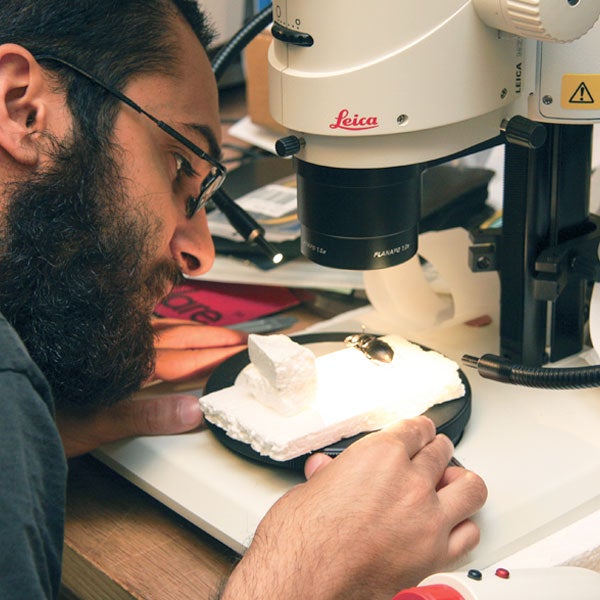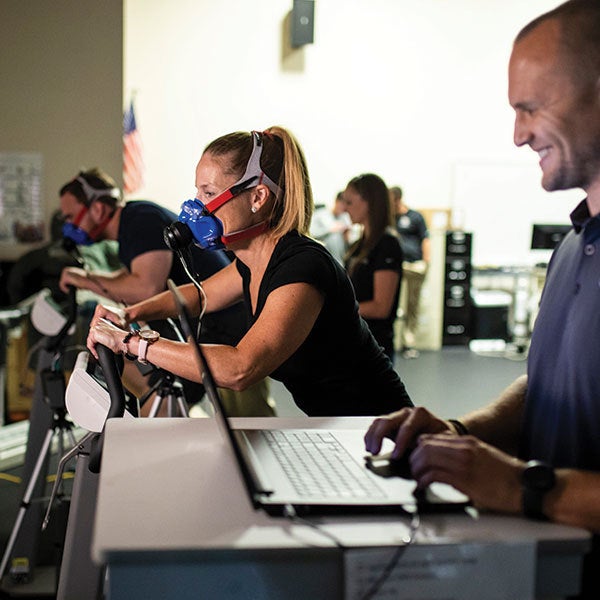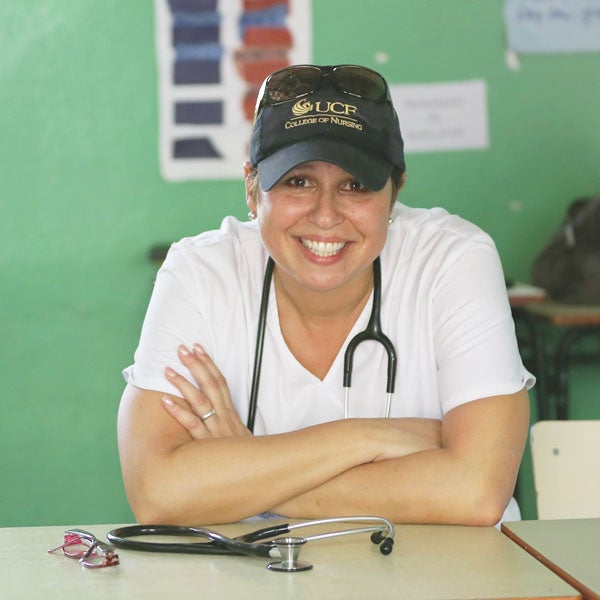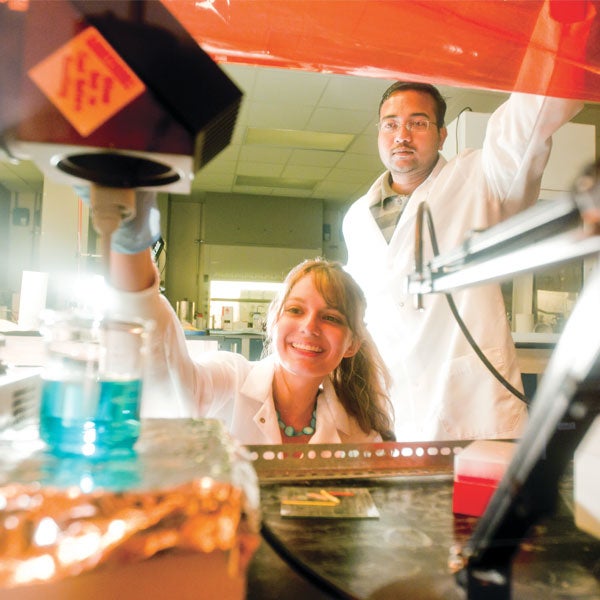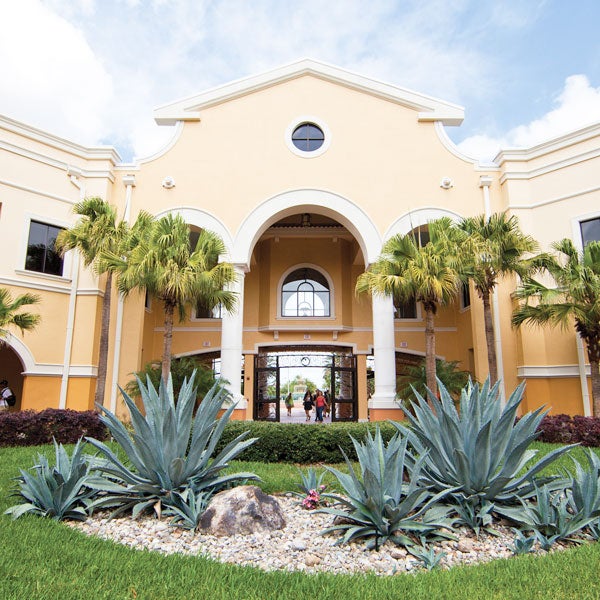The Sociology PhD program provides training in the skills necessary to secure research careers in both academic and non-academic professions and emphasizes applied research in community-based settings.
The Sociology PhD program is organized around a curriculum that combines grounding in theoretical perspectives and methodological skills of the discipline with advanced study in the department's five primary areas of specialization.
Students will develop a Primary Area of Specialization from the five primary areas in the department: Crime and Deviance; Domestic Violence; Medical Sociology; Social Inequalities; Spatial Sociology and Geographic Information Systems. Additional Primary Areas of Specialization can be assembled by students based on course offerings pending approval by the graduate committee.
The five primary areas of specialization are organized around the themes mentioned below.
Crime and Deviance: The Crime and Deviance area of specialization comprises a broad analysis of criminal and deviant behavior including the locations of crime, fluctuations in crime rates, and the experiences of crime victims. This research promotes a deeper understanding of the power dynamics involved in the labeling and definition of crime and the social factors that make some people more likely than others to commit different crimes, experience victimization, and have differential experiences with the criminal justice/legal system. The study of crime and deviance is multidisciplinary, and the department's contribution includes a focus on the profound impact social location has on criminal behavior and victimization. Faculty in this area emphasize critical approaches and applied research that contributes to policy and practice.
Medical Sociology: The Medical Sociology area of specialization examines the ways connecting social statuses relate to health, illness, and medical care. This area includes analysis of social, political, economic, and environmental factors that impact health and illness; societal structures and forces that constrain medical care; people’s subjective experiences of health, illness, and healthcare; and social movements related to health and healthcare. Areas of emphasis include reproductive health, environment, substance use, and health and healthcare among minoritized populations.
Social Inequalities: The Social Inequalities area of specialization examines how power, social, and spatial inequalities are manifested, reinforced, and contested in contemporary society. It seeks to understand how inequalities are structured within social institutions; how and why power relationships have shifted over time; how they manifest in contemporary institutions, groups, and interactions; how social inequalities vary across space and place; and how social forces perpetuate and challenge social inequalities. While all major systems of inequality are explored, particular focus is placed on how race, gender, and social class converged within institutions, and the resulting consequences of such inequalities for individuals, groups, and communities.
Spatial Sociology and Geographic Information Systems: The Spatial Sociology and Geographic Information Systems (GIS) area of specialization examines the convergence of GIS and related geospatial technologies and society. The area considers how such technologies: interact with social groups and society; create space and place; and can be applied to examine social and environmental disparities, public health issues, and crime patterns. The area emphasizes theoretical, critical, community-based, and applied foundations of spatial sociology, GIS, and related geospatial technologies.
Secondary Area of Specialization. Students will also create a Secondary Area of Specialization. Secondary Areas can be created from the list of primary areas (e.g., the five areas listed above) or they can be assembled by the student, advisor, and graduate committee to reflect their particular interests. The Secondary Area may include 1 graduate course from outside the department. Such courses may include 1 6000 or 7000 level course from the related fields of Anthropology (ANG, ANT), Communications (COM), Criminal Justice (CCJ, CJE, CJJ, CJT), International Studies (INR), Political Science (POS, POT, CPO), Psychology (CLP, DEP, INP, PSY, SOP), or Women’s and Gender Studies (WST). Graduate courses from departments not included in this list may count with approval by the Graduate Director. More than 1 course from outside the Sociology department may count with approval by the Graduate Director. Courses that count toward the primary area of specialization may not also count towards the secondary area of specialization.
The program is one of only a few Sociology programs in the United States focusing on applied research. Students are trained in specific applied research skills such as data analysis, qualitative methods, quantitative methods, mixed methods, Geographic Information Systems (GIS), and/or program evaluation. Combined with course work in one of the five primary areas of specialization and a secondary area of specialization, graduates will be trained for employment in the following settings: the academy, industry, business, government, and/or non-profit agencies. The program provides training in the skills necessary to secure advanced careers in academic and non-academic professions and emphasizes applied research in community-based settings.
The Sociology PhD requires a minimum of 90 credit hours beyond the bachelor's degree, which include the courses below. Those students with an
M.A. or M.S. degree in Sociology or a closely related field can transfer up to 30 graduate credit hours into their PhD program with consent of the Sociology graduate committee and UCF College of Graduate Studies.
After entering the PhD program and successfully completing all requirements for the Applied Sociology MA degree, the student will be awarded an MA degree and then continue on to remaining PhD program requirements. Requirements for the MA degree include successful completion of 30 credit hours, including 12 credit hours of required courses (SYA 5625 Proseminar, SYA 6126 Social Theory, and at least 2 of the following: SYA6305 Quantitative Social Research Methods, SYA6315 Qualitative Research Methods, SYA6356 Geographic Information Systems in Society) and SYA 6507 Academic Writing in sociology (3 credit hours) and SYA 6909 Research Report (3 credit hours) where students will execute a research report to demonstrate their knowledge gained in a research topic agreed upon and approved by their advisory committee. At this juncture, students may also elect to discontinue their work toward the remaining PhD requirements and leave the program. Students who complete all requirements for the MA degree will be awarded the MA degree.
Completion of All Core Courses (24 credit hours):
- SYA 5625: Proseminar
- SYA 6126: Social Theory
- SYA 6305: Quantitative Social Research Methods
- SYA 6315: Qualitative Research Methods
- SYA 6356: Geographic Information Systems in Society
- SYA 7019: Advanced Sociological Theory
- SYA 6507: Academic Writing in Sociology
- SYA 7625: Advanced Proseminar
Select Any 2 of the Following Methods Courses (6 credit hours):
- SYA 6425: Design and Conduct of Social Surveys
- SYA 6455: Statistical Analysis
- SYA 6657: Program Design and Evaluation
- SYA 7407: Advanced Quantitative Data Analysis
- SYA 7318: Advanced Qualitative Data Analysis
- SYA 7457: Topics in Data Analysis
- SYA 7658: Social Policy and Research Analysis
Select Any 1 Additional Theory Course (3 credit hours):
- SYA 6128: Theoretical Criminology
- SYA 6933: Topics in Sociological Theory
Required Research Credits (21 credit hours):
- SYA 6909 Research Report (3 credit hours)
- Doctoral Research (3 credit hours)
- Dissertation Research (15 credit hours)
Primary Area of Specialization (12 hours):
- SYA 7645: Advanced Readings in Sociology (3 credits)
- Any 3 electives in primary area of specialization outlined below (9 credits)
Primary Areas of Specialization
Crime and Deviance
- SYP 5566 Seminar on Domestic Violence
- SYA 6128 Theoretical Criminology
- SYO 6515 Issues in Social Disorganization
- SYP 6515 Deviant Behavior Issues
- SYP 6517 Topics in Crime and Deviance
- SYP 6518 Guns, Crime, and Violence
- SYP 6522 Sociological Perspectives in Victims
- SYP 6524 Social Organization of Homicide
- SYP 6525 Sexual Violence in Society
- SYP 6546 Crime, Law, Inequality
- SYP 6555 Sociology of Alcohol and Drugs
- SYP 6561 Child Abuse in Society
- SYP 6563 Reactions to Domestic Violence
- SYP 6570 Topics in Domestic Violence
Medical Sociology
- SYD 6363 Social Inequalities and Reproductive Health
- SYD 6404 Food Insecurity and Health
- SYO 6405 Sociology of Health and Illness
- SYO 6406 Medical Sociology
- SYO 6409 Social Inequalities in Health
- SYP 6555 Sociology of Alcohol and Drugs
- SYP 6735 Sociology of Health and Aging
Social Inequalities
- SYD 5795 Class, Race, and Gender in American Society
- SYD 6417 Contemporary Urban Society
- SYD 6363 Social Inequalities and Reproductive Health
- SYD 6428 Poverty, Homelessness and the Cities
- SYD 6538 Topics in Social Inequalities
- SYD 6705 Seminar in Race and Ethnicity
- SYD 6809 Seminar in Gender Issues
- SYD 6405 Space, Place and Inequalities
- SYO 6256 Inequality and Education
- SYO 6409 Social Inequalities in Health
- SYO 6538 Topics in Social Inequalities
- SYP 6546 Crime, Law, Inequality
Spatial Sociology & Geographic Information Systems
- SYA 5941 Participatory Geographic Information Systems in Belize
- SYA 6452 GIS Applications
- SYA 6458 Advanced Topics in Geographic Information Systems in Society
- SYA 6358: Advanced Spatial Sociology: Geographic Information Systems with Communities
- SYA 6359 GIS and Health in Society
- SYD 5795 Class, Race, and Gender in American Society
- SYD 6417 Contemporary Urban Society
- SYD 6428 Poverty, Homelessness, and the Cities
- SYD 6405 Space, Place and Inequalities
Secondary Area of Specialization (9 hours):
- Students will create a Secondary Area of Specialization with 9 hours of Sociology graduate courses. A Secondary Area may be a substantive topic area from any of the 5 Areas of Specialization listed above, a research approach (e.g., Quantitative Methods), sociological theory/ies, or an approach to knowledge dissemination (e.g., Public Sociology, Applied Sociology).
- Secondary Areas can be created from the list of primary areas (e.g., Crime and Deviance, Social Inequalities, etc.) or they can be assembled by the student and graduate committee to reflect their particular interests. They may include 1 6000 or 7000 level course from the related fields of Anthropology (ANG, ANT), Communications (COM), Criminal Justice (CCJ, CJE, CJJ, CJT), International Studies (INR), Political Science (POS, POT, CPO), Psychology (CLP, DEP, INP, PSY, SOP), or Women and Gender Studies (WST). Graduate courses from departments not included in this list may count with approval by the Graduate Director. More than 1 course from outside the Sociology department may count with approval by the Graduate Director.
- Courses that count toward the primary area of specialization may not also count towards the secondary area of specialization.
Unrestricted Electives (15 hours):
- Any graduate course inside the department. A student may also include one 6000 or 7000 level course from the related fields of Anthropology (ANG, ANT), Communications (COM), Criminal Justice (CCJ, CJE, CJJ, CJT), International Studies (INR), Political Science (POS, POT, CPO), Psychology (CLP, DEP, INP, PSY, SOP), or Women and Gender Studies (WST). Graduate courses from departments not included in this list may count with approval by the Graduate Director. More than 1 course from outside the Sociology department may count with approval by the Graduate Director.
- Independent Study, Practicum/Internship, Directed Independent Research
Program Prerequisites
Students entering the Sociology PhD program with regular status are normally expected to have completed course work generally required for a bachelor's degree in Sociology or a closely related field from an accredited institution recognized by UCF.
Those students with an MA or MS degree in Sociology or a closely related field can transfer up to 30 graduate credit hours into their PhD program with consent of the Sociology graduate committee and UCF College of Graduate Studies.
Degree Requirements
Core
24 Total Credits
- Earn at least 24 credits from the following types of courses: • SYA 5625: Proseminar • SYA 7625: Advanced Proseminar • SYA 6126: Social Theory • SYA 6305: Quantitative Social Research Methods • SYA 6315: Qualitative Research Methods • SYA 6356: Geographic Information Systems in Society • SYA 7019: Advanced Sociological Theory • SYA 6507: Academic Writing in Sociology
Research Methods
6 Total Credits
- Earn at least 6 credits from the following types of courses: Select Any 2 of the following methods courses: • SYA6425: Design and Conduct of Social Surveys • SYA 6455: Statistical Analysis • SYA 6657: Program Design and Evaluation • SYA 7407: Advanced Quantitative Data Analysis • SYA 7318: Advanced Qualitative Data Analysis • SYA 7457: Topics in Data Analysis • SYA 7658: Social Policy and Research Analysis
Theory
3 Total Credits
- Complete at least 1 of the following:
- SYA6933 - Topics in Sociological Theory (3)
- SYA6128 - Theoretical Criminology (3)
Primary Area of Specialization Electives
12 Total Credits
- Earn at least 12 credits from the following types of courses: Students will select a minimum of 12 credit hours in a Primary Area of Specialization. This will include SYA 7645: Advanced Readings in Sociology (3 credit hours) and any 3 unrestricted electives in one of the department's five primary areas of specialization: Crime and Deviance; Domestic Violence; Medical Sociology; Social Inequalities; Spatial Sociology and Geographic Information Systems. Additional Primary Areas of Specialization can be assembled by students based on course offerings pending approval by the graduate committee. Crime and Deviance • SYA 6128 Theoretical Criminology • SYO 6515 Issues in Social Disorganization • SYP 6515 Deviant Behavior Issues • SYP 6517 Topics in Crime and Deviance • SYP 6518 Guns, Crime, and Violence • SYP 6522 Sociological Perspectives in Victims • SYP 6524 Social Organization of Homicide • SYP 6546 Crime, Law, Inequality • SYP 6555 Sociology of Alcohol and Drugs Domestic Violence • SYO 6515 Issues in Social Disorganization • SYP 5566 Seminar on Domestic Violence • SYP 6522 Sociological Perspectives in Victims • SYP 6525 Sexual Violence in Society • SYP 6561 Child Abuse in Society • SYP 6563 Reactions to Domestic Violence • SYP 6570 Topics in Domestic Violence Social Inequalities • SYD 5795 Class, Race, and Gender in American Society • SYD 6417 Contemporary Urban Society • SYD 6363 Social Inequalities and Reproductive Health • SYD 6428 Poverty, Homelessness and the Cities • SYD 6538 Topics in Social Inequalities • SYD 6705 Seminar in Race and Ethnicity • SYD 6809 Seminar in Gender Issues • SYD 6405 Space, Place and Inequalities • SYO 6256 Inequality and Education • SYO 6409 Social Inequalities in Health • SYO 6538 Topics in Social Inequalities • SYP 6546 Crime, Law, Inequality Medical Sociology • SYD 6363 Social Inequalities and Reproductive Health • SYD 6404 Food Insecurity and Health • SYO 6405 Sociology of Health and Illness • SYO 6406 Medical Sociology • SYO 6409 Social Inequalities in Health • SYP 6555 Sociology of Alcohol and Drugs • SYP 6735 Sociology of Health and Aging Spatial Sociology & GIS • SYA 5941 Participatory Geographic Information Systems in Belize • SYA 6452 GIS Applications • SYA 6458 Advanced Topics in Geographic Information Systems in Society • SYA 6xxx GIS and Health • SYA 6xxx Advanced Spatial Sociology: Geographic Information Systems with Communities • SYD 5795 Class, Race, and Gender in American Society • SYD 6417 Contemporary Urban Society • SYD 6428 Poverty, Homelessness, and the Cities • SYD 6405 Space, Place and Inequalities *Additional Primary Areas of Specialization can be assembled by students based on course offerings pending approval by the graduate committee.
Secondary Area of Specialization Electives
9 Total Credits
- Earn at least 9 credits from the following types of courses: Students will create a Secondary Area of Specialization with 9 hours of Sociology graduate courses. A Secondary Area may be a substantive topic area from any of the 5 Areas of Specialization listed above, a research approach (e.g., Quantitative Methods), sociological theory/ies, or an approach to knowledge dissemination (e.g., Public Sociology, Applied Sociology). Secondary Areas can be created from the list of primary areas (e.g., Crime and Deviance, Social Inequalities, etc.) or they can be assembled by the student and graduate committee to reflect the student's interests and career goals. They may include 1 6000 or 7000 level course from the related fields of Anthropology (ANG, ANT), Communications (COM), Criminal Justice (CCJ, CJE, CJJ, CJT), International Studies (INR), Political Science (POS, POT, CPO), Psychology (CLP, DEP, INP, PSY, SOP), or Women's and Gender Studies (WST). Graduate courses from departments not included in this list may count with approval by the Graduate Director. More than 1 course from outside the Sociology department may count with approval by the Graduate Director. Courses that count toward the primary area of specialization may not also count towards the secondary area of specialization.
Unrestricted Electives
15 Total Credits
- Earn at least 15 credits from the following types of courses: Unrestricted electives may include any graduate courses inside the department. Graduate courses outside of the department may also count. These courses may include 1 6000 or 7000 level course from the related fields of Anthropology (ANG, ANT), Communications (COM), Criminal Justice (CCJ, CJE, CJJ, CJT), International Studies (INR), Political Science (POS, POT, CPO), Psychology (CLP, DEP, INP, PSY, SOP), or Women's and Gender Studies (WST). Graduate courses from departments not included in this list may count with approval by the Graduate Director. More than 1 course from outside the Sociology department may count with approval by the Graduate Director. These credits may include Independent Study, Practicum/Internship, and/or Directed Independent Research credit hours.
Dissertation
21 Total Credits
- Earn at least 21 credits from the following types of courses: SYA 6909: Research Report (3 credit hours); SYA 7919: Doctoral Research (3 credit hours); SYA 7980: Doctoral Dissertation (15 credit hours);
Examinations
0 Total Credits
- Details: After completing the program’s required core courses in theory and research methods and 12 hours in a Primary Area of Specialization, a student will take a comprehensive Qualifying Examination. Students passing the Qualifying Examination will continue with their scheduled plan of study. Students failing the Qualifying Examination must retake it the next semester it is offered. If the Qualifying Examination is failed a second time, the student will be dismissed from the Sociology doctoral program.
Section 1: Sociological Theory
0 Total Credits
- All students who take the exam in a given semester will receive the same questions. Students will be required to demonstrate understanding of the development of sociology as a discipline and the major theoretical perspectives and paradigms that make up sociological thought.
Section 2: Research Methods
0 Total Credits
- All students who take the exam in a given semester will receive the same questions. Students will be required to demonstrate competence in reading and understanding research articles using qualitative, quantitative and GIS methods, and demonstrate mastery of either qualitative or quantitative methodological approaches.
Section 3: Primary Area of Specialization
0 Total Credits
- All students who take the exam in the same primary area of specialization in a given semester will receive the same questions. Students will be expected to demonstrate mastery of an area in two ways: 1) Students will provide an historical overview and contemporary contextualization of the area of specialization (relevant theories, studies, debates, etc.); 2) Students will situate their current interests in contemporary debates and future directions for the area of specialization.
Committee
0 Total Credits
- The Qualifying Exams will be graded by the following: The Theory Section will be graded by a rotating committee of 3 Sociology faculty with strengths in theory. The Methods Section will be graded by a rotating committee of 3 Sociology faculty with strengths in methods. The Area Section will be graded by a committee of 3 Sociology faculty related to the student’s primary area of specialization.
Administration
0 Total Credits
- The Qualifying Exams will be graded by the following: The Theory Section will be graded by a rotating committee of 3 Sociology faculty with strengths in theory. The Methods Section will be graded by a rotating committee of 3 Sociology faculty with strengths in methods. The Area Section will be graded by a committee of 3 Sociology faculty related to the student’s primary area of specialization. Sample study guides with sample readings will be provided to all PhD students upon entry into the PhD program via Webcourses. The Graduate Director will also hold a meeting in the first academic semester for PhD students to answer their questions and discuss the importance of preparation and long-term planning prior to the exam period. The Qualifying Exam will be offered to students two times during the academic year (once in the fall semester, once in the spring semester). Students must notify the Graduate Director and Graduate Admissions Coordinator by June 1 to take the exam in the fall semester or by October 1 to take the exam in the spring semester. Students will select a primary area of specialization. The exam will be distributed by the Graduate Admissions Coordinator and Graduate Director via Webcourses.
Candidacy Examination
0 Total Credits
- The dissertation proposal defense constitutes the program's candidacy examination, and students who successfully pass their proposal defense along with other requirements shall be admitted to candidacy. Other requirements for candidacy include: 1) Completion of all coursework, except for dissertation hours, 2) Successful completion of the Qualifying Examination, 3) Creation and approval of the dissertation advisory committee, consisting of approved graduate faculty and graduate faculty scholars, 4) Successful completion of the online Collaborative Institutional Training Initiative (CITI) “Responsible Conduct of Research” training module in the Social and Behavioral Sciences, 5) Completion of four face-to-face ethics/RCR Academic Integrity Training workshops coordinated by the College of Graduate Studies and the Office of Research, and 6) Submittal of an approved program of study. The dissertation proposal will encompass an overview of the dissertation topic that includes an in-depth review of relevant literature, a precise statement of the research question, and specific research design (planned methodology and analysis). The student's Dissertation Advisory Committee will supervise the preparation of the dissertation proposal and the defense.
Admission to Candidacy
0 Total Credits
- The following are required to be admitted to candidacy and enroll in dissertation hours: Completion of all required course work, except for dissertation hours. Completion of UCF Academic Integrity training and UCF IRB training requirements through the College of Graduate Studies Successful completion of the candidacy examination where students defend their dissertation proposal. The dissertation advisory committee is formed, consisting of approved graduate faculty and graduate faculty scholars. Submittal of an approved program of study.
Dissertation
0 Total Credits
- A dissertation is required for completion of the PhD, along with an oral defense of the completed dissertation through a minimum of 15 credit hours, which students use to accomplish original research on a topic approved by their advisor and three additional committee members. One committee member must be from sociology or a relevant field outside the UCF Department of Sociology. The dissertation must conform to standard disciplinary, institutional, and departmental practices. Students may not enroll for dissertation credit hours until they have completed all requirements to be admitted to candidacy.
Equipment Fee
0 Total Credits
- Full-time students in the Sociology PhD program pay a $39 equipment fee each semester that they are enrolled. Part-time students pay $19.50 per semester.
Grand Total Credits: 90
Application Requirements
Application Deadlines
Financial Information
Graduate students may receive financial assistance through fellowships, assistantships, tuition support, or loans. For more information, see the College of Graduate Studies Funding website, which describes the types of financial assistance available at UCF and provides general guidance in planning your graduate finances. The Financial Information section of the Graduate Catalog is another key resource.
Fellowship Information
Fellowships are awarded based on academic merit to highly qualified students. They are paid to students through the Office of Student Financial Assistance, based on instructions provided by the College of Graduate Studies. Fellowships are given to support a student's graduate study and do not have a work obligation. For more information, see UCF Graduate Fellowships, which includes descriptions of university fellowships and what you should do to be considered for a fellowship.
In addition to the details provided above, here we offer an example of course scheduling for students to complete the program in the allotted time frame. These are sample schedules and subject to flexibility for student needs and circumstances.
| |
Fall |
Spring |
Summer |
| Year 1 (18 Hours) | Proseminar
Qualitative Methods or GIS
Elective1 | Social Theory
Quantitative Research Methods
Elective | |
| Year 2 (21 Hours) | Advanced Theory
Qualitative Methods or GIS
Academic Writing in Sociology | Methods Option 1
Elective
Research Report | Elective 3 |
| Year 3 (18 Hours) | Methods Option 2
Advanced Proseminar
Elective | Theory Option
Elective
Elective | |
| Year 4 (18 Hours) | Advanced Readings in Sociology
Elective
Elective | Doctoral Res.
Elective
Elective | |
| Year 5 (15 Hours) | Dissertation Research (9hrs) | Dissertation Research (6hrs) | |
- “Elective” includes electives from Primary Area of Specialization, Secondary Area of Specialization and Unrestricted Electives. This approach allows/encourages students to take courses that interest them and build their primary and secondary areas as they progress through the program.







